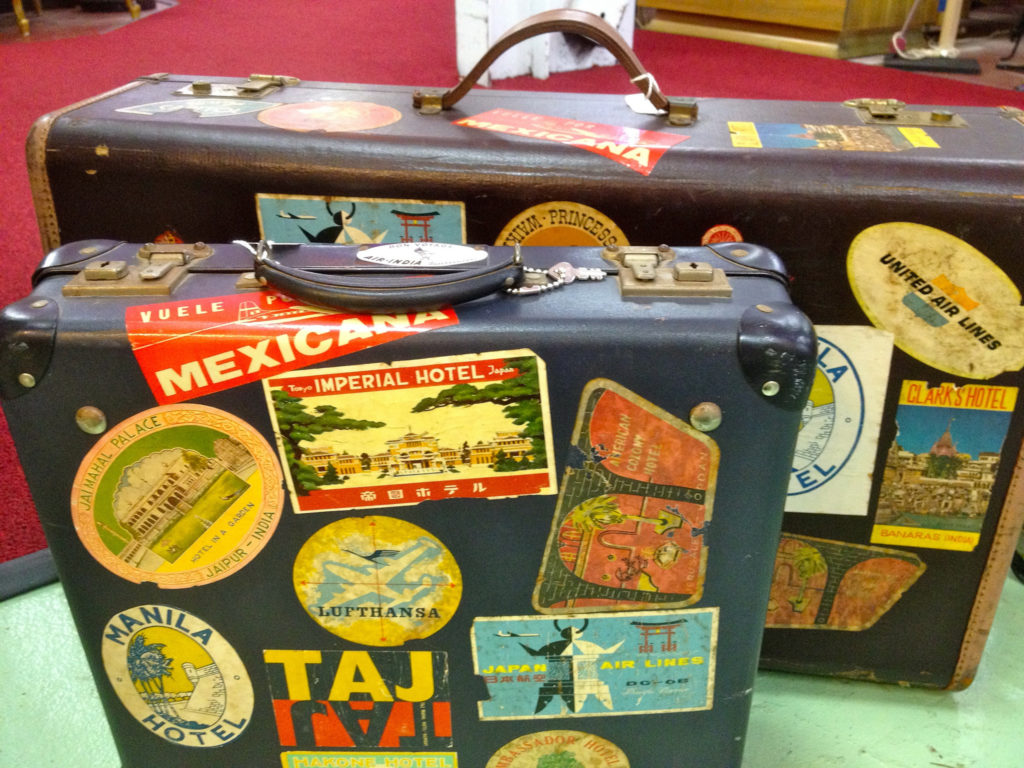The best things to pack for a tour are a good attitude, good manners, good grooming habits, and a lowered voice, especially on public transportation. A good attitude is my #1 item and it is only made possible when group leaders have done their job in setting the right expectations for their students and especially for their parents. Everyone needs to be in the know before the tour departure date. I spend more time preparing my parents about the expectations for the tours rather than my students. If my parents are happy, then their children will be, too.
Best Point of Contact Before, During and After Tour
At my pre-departure meetings and in my pre-tour letters, I make it clear to the parents that I’m the one my students should go to if there is any problem or complaint because I’m there on the tour with them and I am in the better position to take care of everything. I’m no miracle worker, but I will do what I can. I ask my students, “Who’s your mama?” and
they know it’s me on the tour. It is an act of faith on the part of my parents to give their children to me for the length of the tour. Parents just need to let me do my job as the group leader. Parents should be in contact with the group leader through the days leading up to the departure date because they are the best point of contact for any tour concerns or questions. Good communication with parents is essential in your pre-tour planning.
That being said, I inform my parents about the difficulty and expense for my students and me to contact them every day while we are on tour. This is an unrealistic expectation some parents have. They need to take into account the time difference and the hectic travel schedule we have. Spare time is rare and we are very busy. I try to “activate” my telephone chain at least twice while we are on tour. I remind the parents about how much work I will be doing to ensure that their children are having a good, but safe time. Students can use the EF phone cards or local cards to call their parents during lunch or before curfew. I show my students how to use these cards and I have spent many an evening after dinner chaperoning students while they use a public telephone near the hotel. They can even bring an international cell phone. I also tell my parents that we will try to find some Internet cafes to use while we are touring.
Contact with Family While on Tour
In my early days of student travel, I would tell my parents that “no news is good news.” That’s not going to make the parents who want minute-to-minute updates of what their children are doing very happy these days when they are so used to calling and texting them. A wonderful consideration a parent can give the group leader is the understanding that daily contact may not be possible. I now travel with an international cell phone and all of my incoming calls are free. For my Japan tour, I told my parents they could call me between the hours of 7-9 am (EST) and I would give my phone to the child whose parent called. (In Japan, it would be 8-10 pm.) I also check on my students to see if they have made at least a couple of calls home.
I still remember a tour when a parent informed her daughter over the phone about how her boyfriend was being seen around town with another girl. Of course, the student was inconsolable after she got off the phone and she made quite a scene in the hotel lobby, too. No doubt the parent wanted to sabotage a relationship she did not approve of for her daughter. I ask my parents to be careful about the news they share with their children if at all possible. There is no need to upset them while they are overseas.
Traveling Abroad Will Allow Students to Grow
Not only is an overseas tour one of the best gifts parents can give their children, so is the freedom of learning to become independent. Before parents send their children off to college, why not give them a trial run on an overseas tour to learn some coping strategies?
I’m speaking from experience. I have a daughter, age 27, and a son, age 25, who traveled with me several times when they were in high school. I threw them into the groups and did not give them any special attention. They learned how to cope and become independent along with the rest of my students.
to be continued… Check back tomorrow for part two.
Related articles

